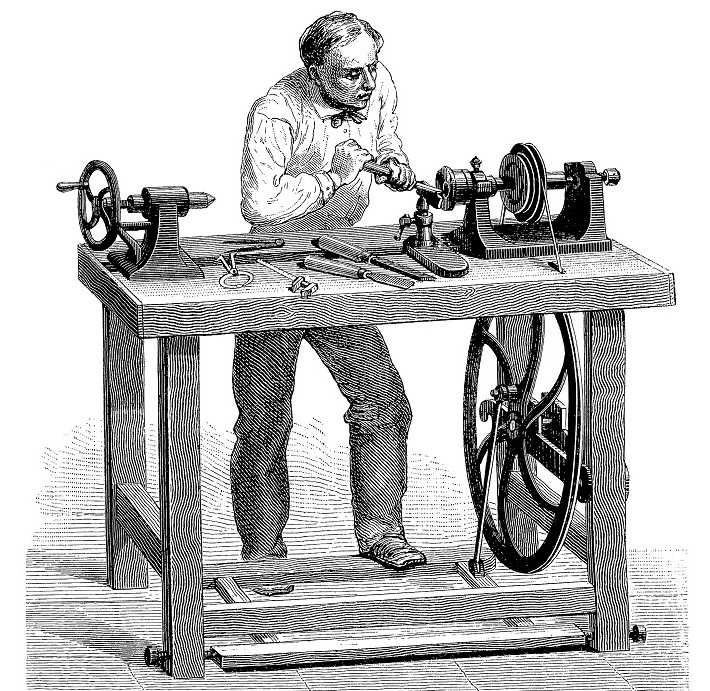The Messy Ancestry of Ideas
One of the most interesting things I've noticed in my time on earth is that in a society full of dogmatic narratives, process ideas tend to have their own tangled lineage, misbegotten into movements and groups they have no historical tradition within, and tearing their own wormhole between and betwixt enemy camps when the opportunity is well suited.
Our hearts scream "fidelity!" but it would seem our heads more often than not say "if you can't beat 'em, join 'em". We deeply want to be seen as loyal, but we have a real knack for rationalizing pragmatism, and with a dash of sophistry we can often even change recorded history to suit our purposes.
And truly...what is better? To be consistent or to be resourceful? It's fair to say "what a stupid question!" But once you think about it, you'll realize this question is the crux of every major policy debate an American political movement has within its own ranks.
The next level I'd like you to glimpse is that we live in a world of narratives which mostly boast about their own determinism. Do X, and you'll get Y. A happened before, B is happening now, C happens next. We know because that's the way we've always done it. Or at least since landmark event Z. All the data says yes, we're right and you can go ahead and turn your brain off now. That will help you feel angry when we need you to.
Would be nice if it was true, but it isn't. These narratives are a lot better at marketing than they are at history. The processes these narratives are spun up to defend change teams, get benched and get drafted out of the minor leagues as needed. When the favored process changes, the narrative usually changes and in such way that you are encouraged to believe the new process was always part of the dogma, rather than an ideological tuning adjustment. Some political participants follow the new program, some reject it and quit the team or switch teams.
The Free Trade Family Tree
Free trade is one of these interesting ideas that has been firmly grafted into the narratives of American politics in the 21st century. Many conservatives see it as American as apple pie, the sort of thing we dumped tea in Boston Harbor to establish. Neoliberals and technocrats insist that it simply produces the best economic results. It is firmly the incumbent process of US trade policy and our de facto economic ideology on trade. Even most Trump supporters talk about a reversion to norm in trade where tariffs return to zero if given conditions are met, as if the moral and practical ideal is completely free trade.
But free trade is not a traditionally American idea. Its roots are in the economics schools of Britain and Austria. The first major act of Congress passed by a President was a tariff in 1789. Washington was a protectionist who once boasted that he purchased only American porter or cheese, stating the following in the 1790 State of the Union:
"A free people ought not only to be armed, but disciplined; to which end a uniform and well-digested plan is requisite; and their safety and interest require that they should promote such manufactories as tend to render them independent of others for essential, particularly military, supplies."
Washington was far from alone. Jefferson, Hamilton, Adams and Madison were also protectionists who passed major tariffs in their respective administrations. For most of the 19th century tariff rates ranged between 20 and 60 percent on imports to industries considered essential or endangered by foreign competition. This general range continued as US policy until the Great Depression, when trade liberalization (free trade) became the new process.
To be sure, there were always vigorous debates about tariff policy in the US, but generally they were understood as an argument about tradeoffs. Tariffs were understood as an incentive structure tool which could be applied to various industries as required, and the lobbies of the various industries sparred over their disparate effects. They were also the primary means the federal government had for raising money in an era where it generally spent money far more responsibly than today, and so tariffs would be leveled to raise funds.
The debate today about free trade is marked by a kind of egalitarianism about the subject, where "free" and "fair" dominate our thinking about the subject of trade. Is trade free? Can we make it so? If not, can we at least make it fair? What in the wide world of economics makes us think our international commerce must necessarily embody either of these terms?
What is trade for?
Let's have a quick thought experiment. I want you to think about the last time you purchased a good or service from a local small business and spent at least $1000.
Why $1000? Because I want you to be thinking about a high margin business. Someone who has real control over the price of what they sell.
I run a small business, I've done many such sales from 1 to 50 times that much money. So I can speak from that experience.
In your mind, you're probably thinking that $1000 covers the cost of materials, the cost of labor, and then a little chunk of cash on the side for a nest egg. That would seem fair. "Free" is slavery, so we'll leave that out of the discussion for now.
In the business's collective mind, that $1000 covered a lot more than that. It covered the cost of potential unknowns that could get them upside down on the deal if things don't go well. It may be covering leftover startup financing, financial ground lost on other recent customers that refused to pay or needed warranty work, an arbitrary margin set to finance other opportunities they hope to move into next year, back taxes, personal emergencies, etc. It might be $1000 instead of $800 because you look like more trouble than an $800 customer, and maybe the last few $800 customers have all been trouble so everyone's looking like a $1000 customer now.
None of those things have anything to do with you. You're just trying to get a product or service at a reasonable price. It's not very fair to pay for all of that.
But...fair's got nothing to do with it. Some of these things a business must learn to do, or they will not survive. It's really hard to price things, and what feels fair to a business owner in a high margin business is usually not enough money. High margin businesses are high risk businesses, because they are usually low volume businesses. Not everyone can do it, and it ain't easy to do. That's leverage, and you've got to use it when necessary.
What you are paying is not fair...it's a cold, calculated cost that a battle-hardened business owner has set because they think it will keep them above water. And maybe even sailing to somewhere nice.
Similarly, we can pretend that international trade is just a pure stuff for stuff exchange. Vietnam has a more "fair" price than Tennessee, so lets get more of their stuff. Stuff generation is actually the most argued virtue of free trade, and probably the most easily validated. Free trade is insanely efficient at making stuff cheaper. I'm not immune to this, I just bought a knock off guitar from Vietnam on Amazon because (surprise) it was 1/5th the cost of its US counterpart. Cheap stuff is really nice, and now we all have cheap electronics (mostly) to show for our free trade. TVs went down 100% in the last 40 years and houses went up 100% because it's apparently harder to ship those from China.
But is the objective of our trade policy cheaper stuff? Should it be? Is cheaper stuff fair?
Washington, Jefferson, Hamilton, et al would articulate an incentive structure for trade that is similar to the pricing rationale I articulated on behalf of your local small business...charge enough to survive, and thrive if possible. Use leverage where necessary. Nobody is forcing anyone to buy your stuff, so tell me what's more fair of a pricing structure than "enough"?
The British and Austrian school devotees would have fair points in saying "yeah but that's not very efficient". Completely right about that. And that's why you're not buying machinery or electronics made in Britain or Austria if you're 99% of the world. Or America at this point for that matter. The British free trade argument is older than the United States so this is a very old process idea that we've avoided until relatively recently. It should be expected that our industry will be less efficient than the rest of the world in some areas (if not all) given our relatively high standard of living. Like the high margin small business owner, we have got to decide if we are willing to charge enough to make it, or not.
If we want domestic manufacturing capability, I would argue that in vulnerable/critical industries the tariff rate on imports should probably never go to 0%. That number needs to always be somewhere in the neighborhood of "enough to thrive" if we want those industries to be strong.
Dance with the one who ditched ya
The most perplexing argument in the face of the current trade situation to me is the one that says tariffs and related trade barriers are dangerous when most of our trading partners use them liberally, in particular countries like Japan and China that are top net exporters in industries that have been crippled in the US.
For one thing, how is it "free trade" when we voluntarily take product from a country with no duty and the same country turns around and slaps tremendous restrictions or taxes on our product? That sounds more like trade sadism or trade suicide.
Secondly, how does this danger of tariffs work against us and for our international rivals? We have the largest, most wealthy consumer market in the world and it's not particularly close. If we lock out foreign competition to that consumer market and lock in domestic manufacture, that's a lot worse for everyone else than it is for us. People are right to say we won’t be exporting cars to China and Japan…and we don’t have to. Those countries do not have any buying power compared to us, we are the target market of the first world.
And given that some countries have already negotiated lower trade barriers, the damage will be dealt primarily to countries who insist on crippling our exports. Anyone outsourcing to countries not willing to play ball will be looking to relocate operations to similar countries that will deal with us.
Signal and noise
In light of all of this, I wonder how well our economic prognosticators in the media actually understand the situation. The argument against the tariffs seems to be something like "do what we say or the financial markets will do mean things". There's a lot of smuggled-in free trade tradition getting passed off as irrefutable wisdom. But from my seat, it looks like neither our own economic policy history nor most of our major trading partners actually agree with this. That's not to say there's no arguments for free trade, I've spent hours listening to them over the years. They just seem to be our arguments in this particular timeframe of the last 80 years, and nobody else's in a global economy.
The noise is free trade, but the signal is protectionism.















